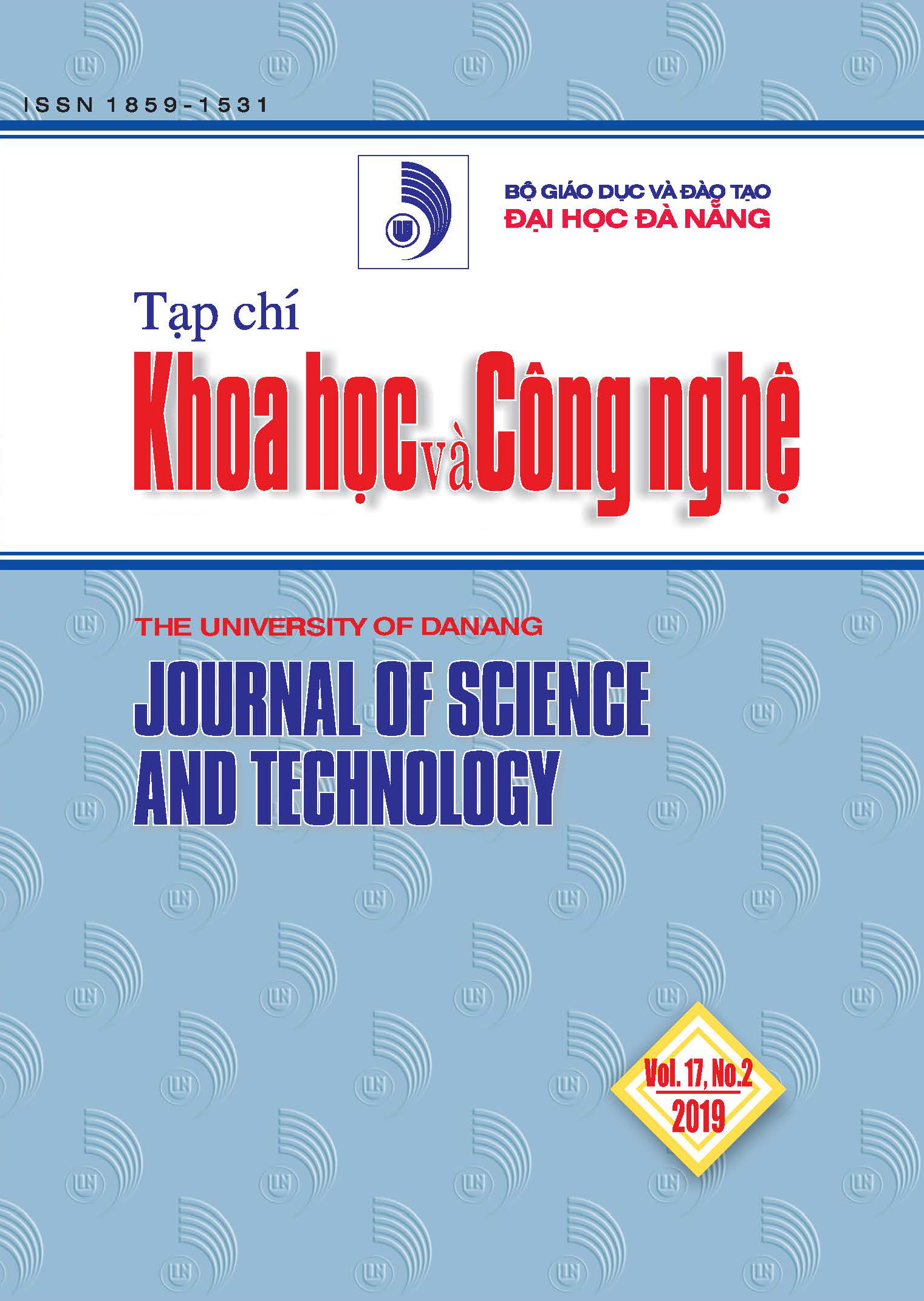Vận dụng phương pháp dạy học theo dự án trong lớp học biên dịch tiếng Anh du lịch: nghiên cứu thực nghiệm
 Tóm tắt: 258
Tóm tắt: 258
 |
|  PDF: 1042
PDF: 1042 
##plugins.themes.academic_pro.article.main##
Author
-
TS. Hồ Sĩ Thắng Kiệt*
Từ khóa:
Dạy học theo dự án
tiếng Anh du lịch
thực nghiệm
tự đánh giá
năng lực tự chủ trong học tập
Tóm tắt
Trong quá trình đổi mới phương pháp dạy và học, việc sử dụng phương pháp dạy học theo dự án (DHDA) đã trở nên phổ biến trong việc dạy và học ngoại ngữ ở nhiều nước trên thế giới. Bài viết này sử dụng phương pháp nghiên cứu thực nghiệm với việc vận dụng DHDA trong lớp học Biên dịch tiếng Anh du lịch. Phương pháp lấy dữ liệu gồm có thông tin điều tra từ các dự án du lịch và bảng tự đánh giá về DHDA của 48 sinh viên năm thứ 3 chuyên ngành tiếng Anh du lịch, Trường Đại học Ngoại ngữ, Đại học Đà Nẵng. Kết quả cho thấy sinh viên đánh giá tích cực về DHDA vì phương pháp này giúp sinh viên có những trải nghiệm thực tế thú vị, đồng thời phát triển kỹ năng cộng tác, giải quyết vấn đề và nâng cao năng lực tự chủ trong học tập. Kết quả bài viết có thể được dùng làm cơ sở cho các nghiên cứu tương lai trong các lớp học tiếng Anh chuyên ngành nhằm đáp ứng nhu cầu ngày càng cao của người học để hội nhập quốc tế.
Tài liệu tham khảo
-
[1] Allen, L., Q., “Implemending a culture portfolio project within a constructivist paradigm”, Foreign Language Annals, 37, 2004, 232-239.
[2] Barak, M., “From "doing" to "doing with learning": reflection on an effort to promote self-regulated learning in technological projects in high school”, European Journal of Engineering Education, 37(1), 2012, 105-116.
[3] Beckett, G. H., “Teacher and student evaluations of Project-Based Instruction”, TESL Canada Journal, 19 (2), 2002.
[4] Bell, S., “Project-based learning for the 21st century: skills for the future”, A Journal of Educational Strategies, Issues and Ideas, 83(2), 2010, 39-43.
[5] Bender, W. N., Project-based learning: differentiating instruction for the 21st century, Corwin Press, 2012.
[6] Benson, P., Teaching and researching autonomy in language learning, Pearson Education Ltd, 2001.
[7] Blumenfeld, P., Fishman, B.J., Krajcik, J., Marx, R.W. & Soloway, E., “Creating usable innovations in systemic reform: scaling up technology-embedded project-based science in urban schools”, Educational Psychologist, 35(3), 2000, 149-164.
[8] Brophy, J., Motivating students to learn, Lawrence Erlbaum Associates, 2004.
[9] Buck Institute for Education, What is project-based learning (PBL), https://www.bie.org/about/what_pbl, 10/11/2018.
[10] Cocco, S., Student leadership development: the contribution of project-based learning. Unpublished Master’s thesis. Royal Roads University, 2006.
[11] Dedouli, M., “Experiential learning-Possibilities of development through the framework of Flexible Zone”, Inspection of Educational Subjects, 12 (6), 2001, 3- 8.
[12] Đỗ Chi Na, Project-based learning in an English for business classroom. Paper presented at 8th International Conference on TESOL, Ho Chi Minh City, Vietnam, 2017.
[13] Duffy, T.M., “Building lines of communication and a research agenda”, In Tobias, S. and Duffy, T (Eds), Constructivist Instruction: Success or Failure, Routledge, 2009, 351-367.
[14] Helle, L., Tynjälä, P. & Olkinuora, E., “Project-based learning in post-secondary education – theory, practice and rubber sling shots”, Higher Education, 51, 2006, 287-314.
[15] Holubova, R., “Effective teaching methods – project-based learning in physics”, US-China Education Review, 12(5), 2008, 27-35.
[16] Kalabzová, M., The application of project-based learning in the English classrooms. Unpublished graduate thesis, 2015.
[17] Kettanun, C., “Project-based learning and its validity in a Thai EFL classroom”, Procedia - Social and Behavioral Sciences, 192, 2015, 567 – 573.
[18] Kokotsaki, D., Menzies, V. and Wiggins, A., “Project-based learning: a review of the literature”, Improving schools, 19 (3), 2016, 267-277.
[19] Markham, T., “Project based learning: a bridge just far enough”, Teacher Librarian, 39(2), 2011, 38-43.
[20] Naylor, S. and Keogh, B., “Constructivism in classroom: Theory into practice”, Journal of Science Teacher Education, 10, 1999, 93-106.
[21] Ngô Hữu Hoàng, “Some utilization of project-based learning for Vietnamese university students of English in the course “Intercultural Communication”, International Journal of English Language Education, 2 (1), 2014, 215-224.
[22] Nguyễn Văn Lợi, “Promoting learner autonomy: Lesson from using project work as a supplement in English skills courses”, Can Tho University Journal of Science, 7, 2017, 118-125.
[23] Petersen, C., & Nassaji, H., “Project-based learning through the eyes of teachers and students in adult EFL classrooms”, The Canadian Modern Language Review, 72(1), 2016, 13-39.
[24] Stoller, F., “Project work: A means to promote language content in methodology”, In J. C.Richards & W. A. Renandya (Eds.), Methodology in language teaching: An anthology of current practice, Cambridge University Press, 2002, 107-120.
[25] Takeda, I., “Report: Project-based learning with 21st century skills for the Japanese language classroom”, Journal of Integrated Creative Studies, 2016, 1-7.
[26] Thomas, J.W, A review of research on project-based learning. Autodesk Foundation, 2000.
[27] Wahyudin, A. Y., “The effect of project-based learning on L2 spoken performance of undergraduate students in English for Business class”, Advances in Social Science, Education and Humanities Research (ASSEHR), 82, 2017, 42-46.
[28] Wrigley, T., “Projects, stories and challenges: more open architectures for school learning”, In S. Bell, S. Harkness & G. White (Eds), Storyline past, present and future, University of Strathclyde, 2007, 166-181
Xem thêm
Ẩn bớt
##plugins.themes.academic_pro.article.sidebar##
Đã Xuất bản
Feb 28, 2019
Download
Cách trích dẫn
TS. Hồ Sĩ Thắng Kiệt*. “Vận dụng phương pháp dạy học Theo dự án Trong lớp học Biên dịch tiếng Anh Du lịch: Nghiên cứu thực nghiệm”. Tạp Chí Khoa học Và Công nghệ - Đại học Đà Nẵng, vol 17, số p.h 2, Tháng Hai 2019, tr 15-20, https://jst-ud.vn/jst-ud/article/view/1959.



